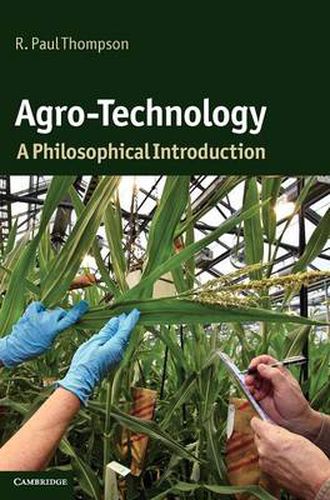Readings Newsletter
Become a Readings Member to make your shopping experience even easier.
Sign in or sign up for free!
You’re not far away from qualifying for FREE standard shipping within Australia
You’ve qualified for FREE standard shipping within Australia
The cart is loading…






Humans have been modifying plants and animals for millennia. The dawn of molecular genetics, however, has kindled intense public scrutiny and controversy. Crops, and the food products which include them, have dominated molecular modification in agriculture. Organisations have made unsubstantiated claims and scare mongering is common. In this textbook Paul Thompson presents a clear account of the significant issues - identifying harms and benefits, analysing and managing risk - which lie beneath the cacophony of public controversy. His comprehensive analysis looks especially at genetically modified organisms, and includes an explanation of the scientific background, an analysis of ideological objections, a discussion of legal and ethical concerns, a suggested alternative - organic agriculture - and an examination of the controversy’s impact on sub-Saharan African countries. His book will be of interest to students and other readers in philosophy, biology, biotechnology and public policy.
$9.00 standard shipping within Australia
FREE standard shipping within Australia for orders over $100.00
Express & International shipping calculated at checkout
Humans have been modifying plants and animals for millennia. The dawn of molecular genetics, however, has kindled intense public scrutiny and controversy. Crops, and the food products which include them, have dominated molecular modification in agriculture. Organisations have made unsubstantiated claims and scare mongering is common. In this textbook Paul Thompson presents a clear account of the significant issues - identifying harms and benefits, analysing and managing risk - which lie beneath the cacophony of public controversy. His comprehensive analysis looks especially at genetically modified organisms, and includes an explanation of the scientific background, an analysis of ideological objections, a discussion of legal and ethical concerns, a suggested alternative - organic agriculture - and an examination of the controversy’s impact on sub-Saharan African countries. His book will be of interest to students and other readers in philosophy, biology, biotechnology and public policy.